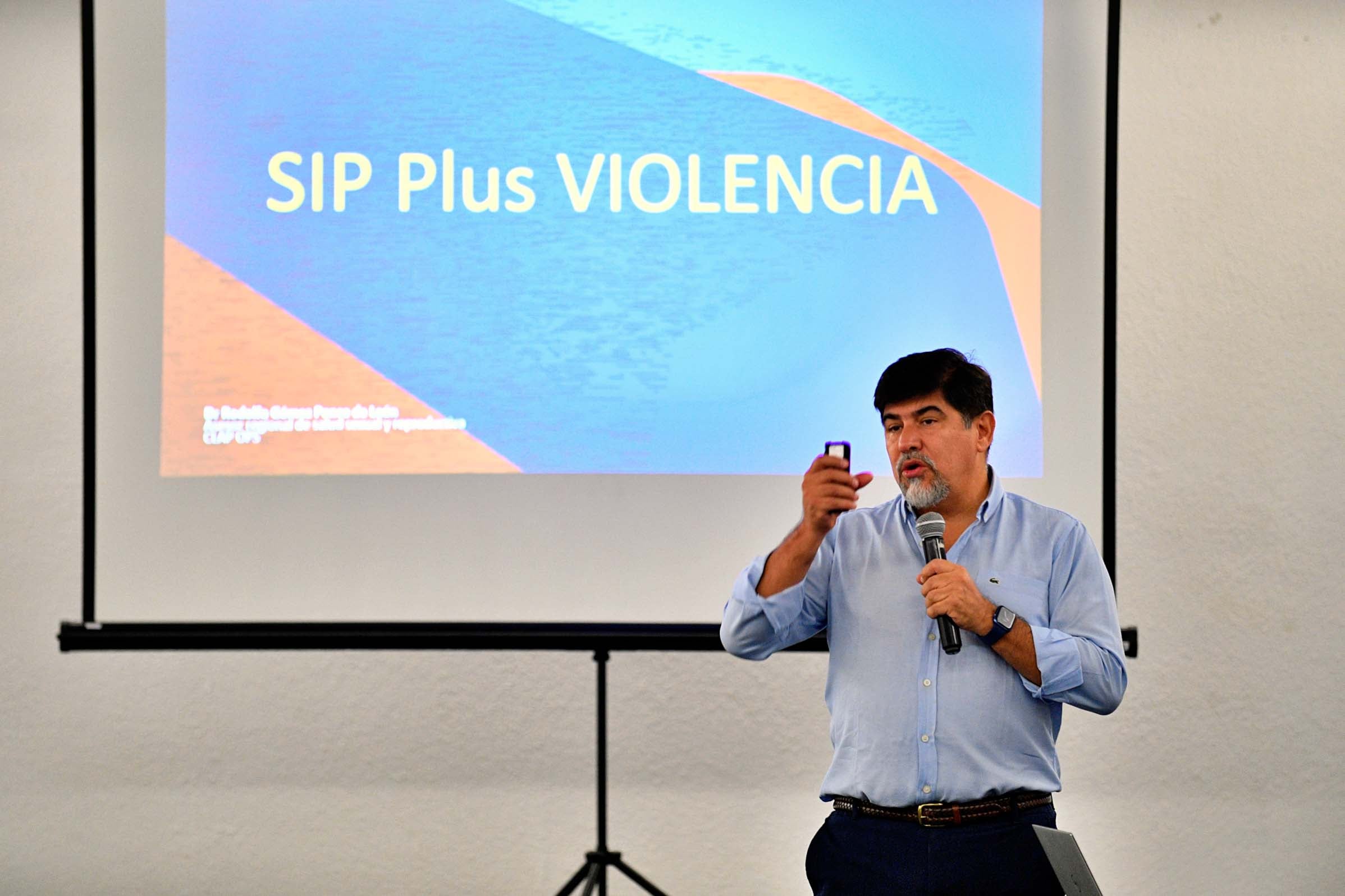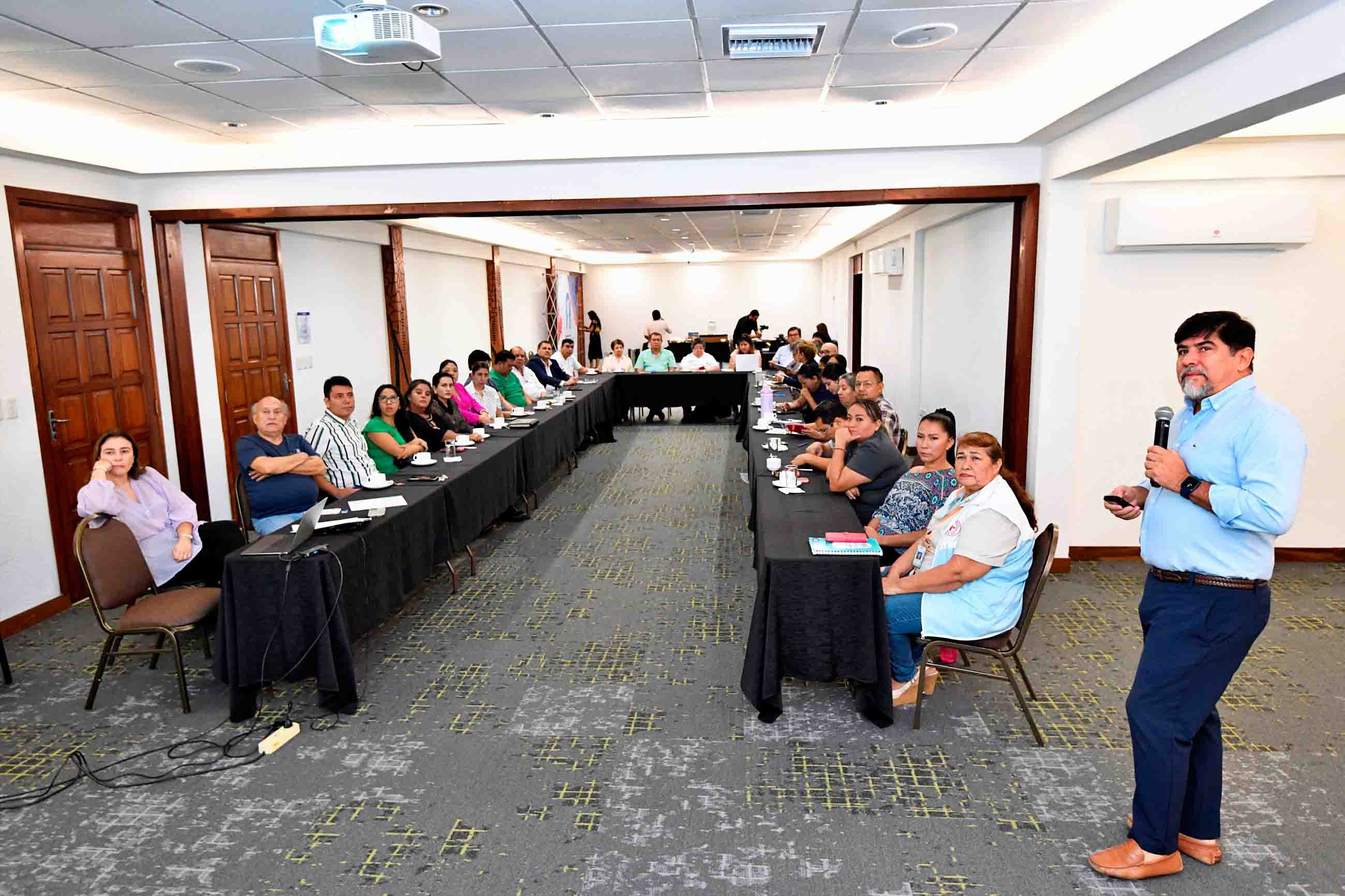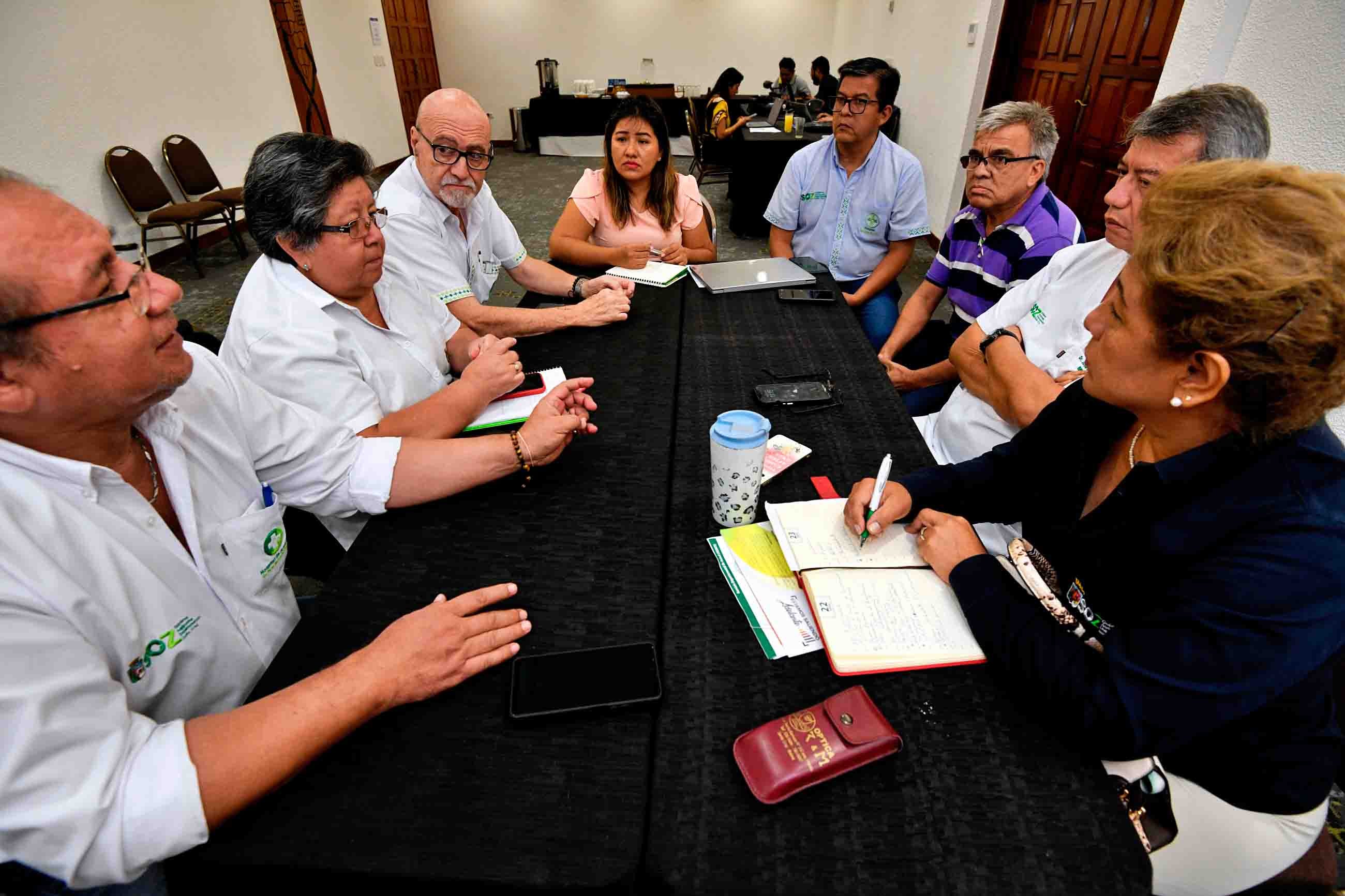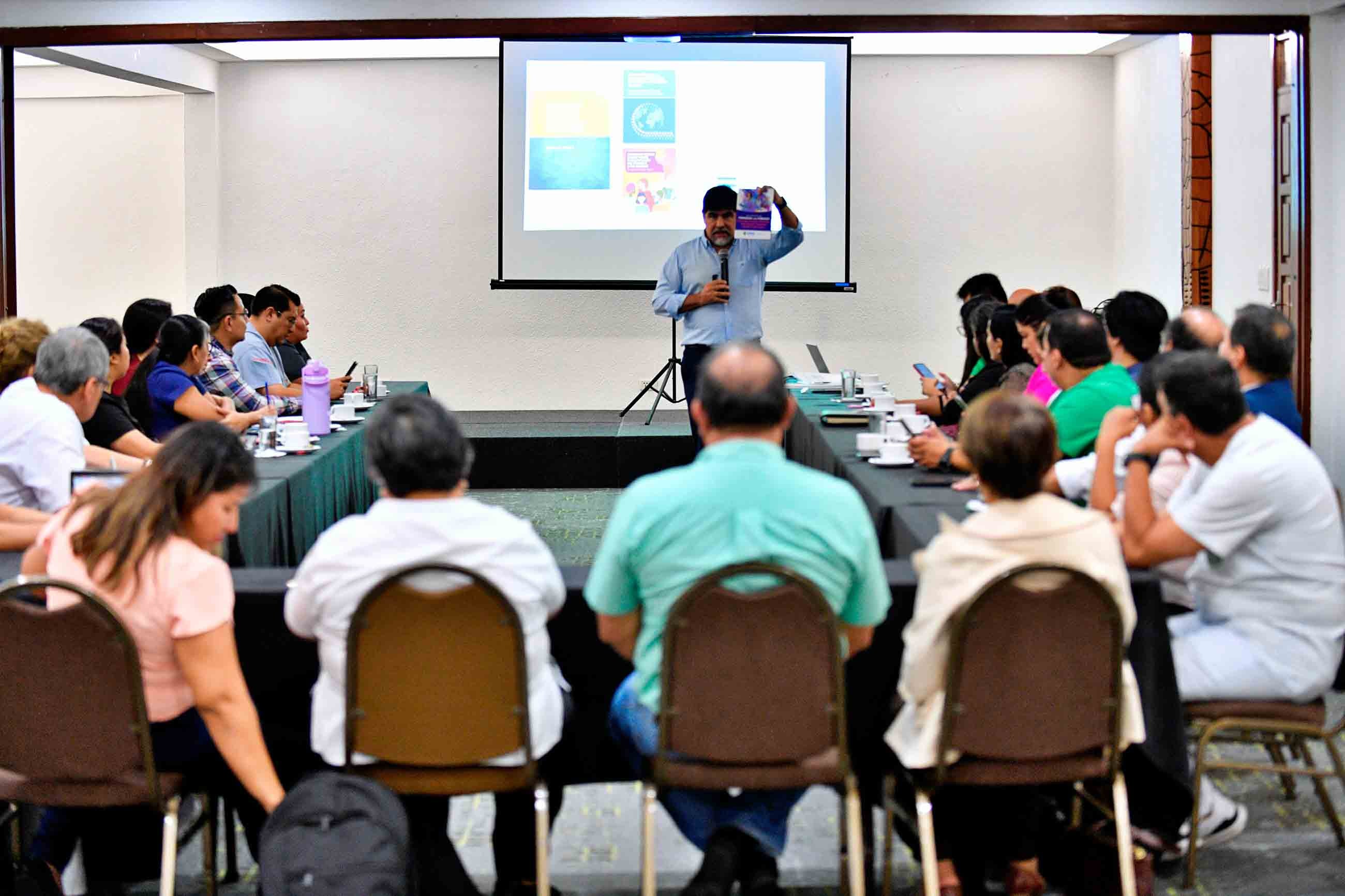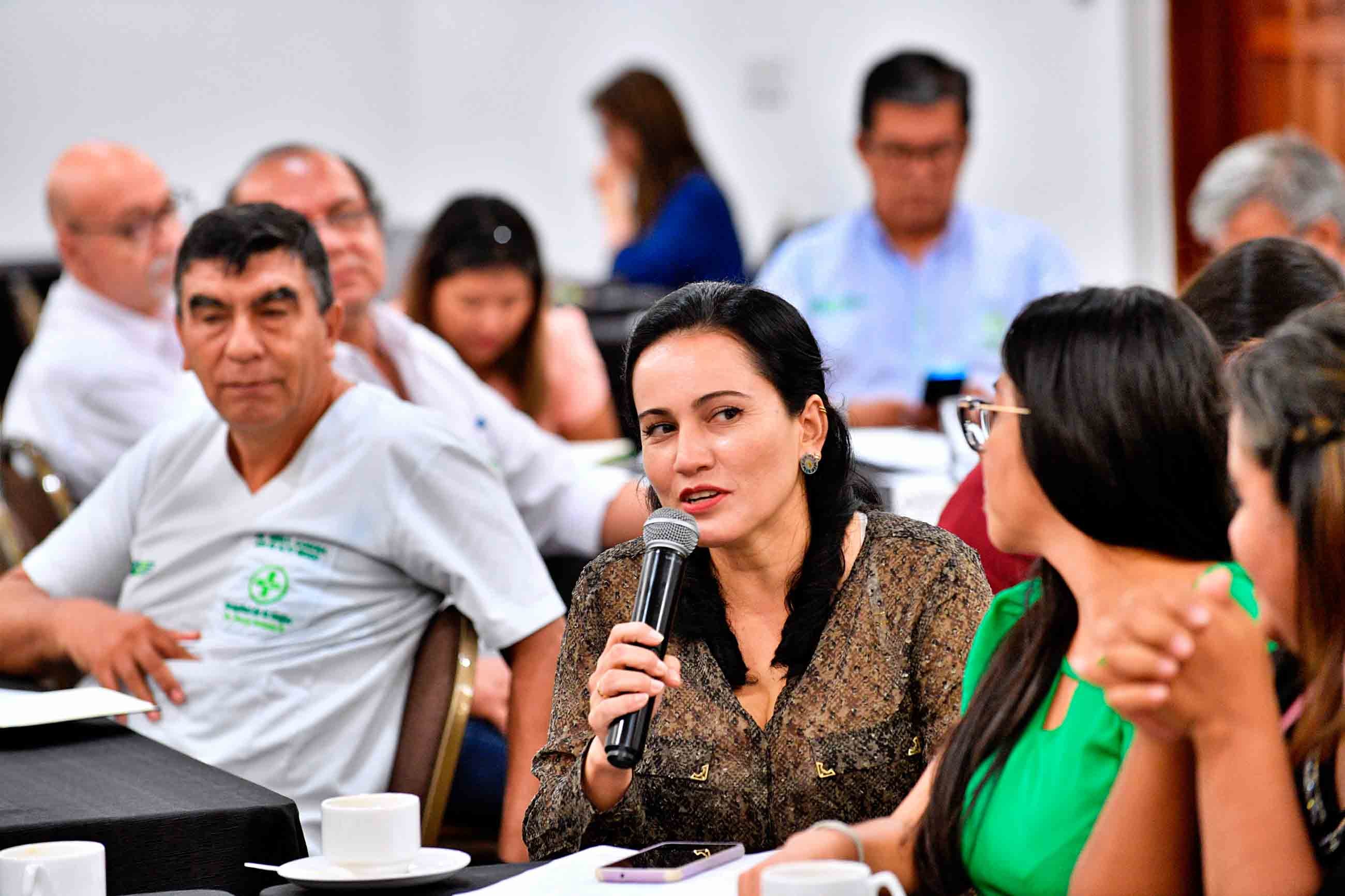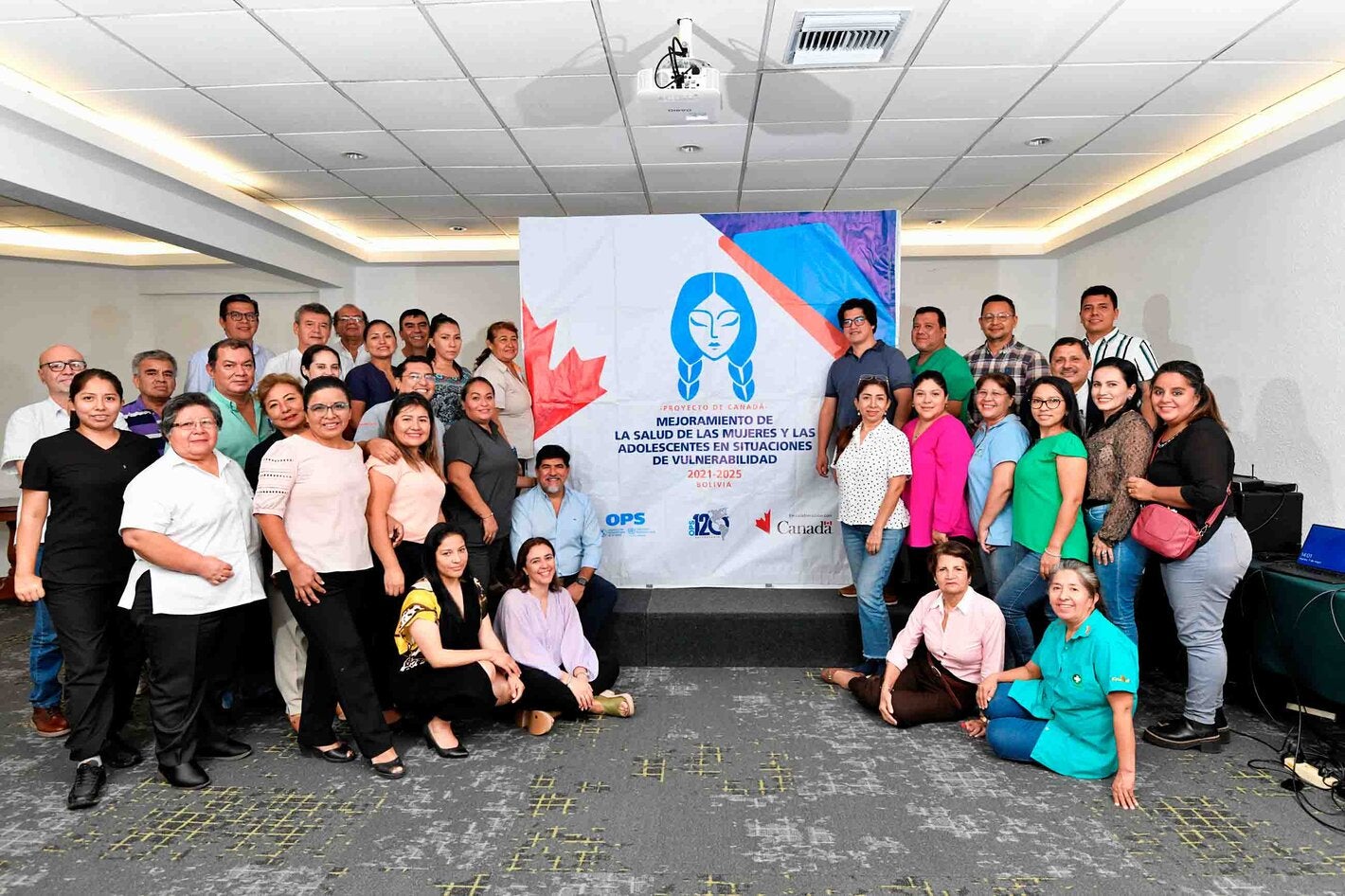
Santa Cruz de la Sierra, Bolivia, May 9, 2024 (PAHO)- Experts from the Latin American Center for Perinatology, Women's Health, and Reproductive Health (CLP/WR) of the Pan American Health Organization/World Health Organization (PAHO/WHO) shared the clinical history of violence with directors of health facilities in the department of Santa Cruz, as part of the strengthening of primary care services, for the identification of women and girls victims of violence, provide them with appropriate care, and put them in contact with other support services.
Health professionals recognised the strengths of the violence clinical history and its feasibility of adaptation to the national context and to national regulations related to the care of victims of gender-based violence. Most of the participants, directors and emergency managers of 1st, 2nd and 3rd level facilities, considered it necessary to incorporate all the information variables presented in the clinical history of violence.
According to data from the Coordinadora de la Mujer, a non-governmental organisation, and its Gender Observatory, the State Attorney General's Office registered 39,096 complaints of family or domestic violence in 2023; while up to last year, 142 complaints of violence against women were filed every day. Likewise, the Public Prosecutor's Office reveals 11,450 complaints of sexual violence against women, children and adolescents in 2023. According to the same source, an average of 30 sexual assaults are reported every day in Bolivia.
SIP Plus violence
The PAHO/WHO CLP/WR Regional Advisor for Sexual and Reproductive Health, Rodolfo Gómez, recalled that the Perinatal Information System (SIP) was born in the perinatal area, but today covers the entire life course, including information on birth, adolescence, reproductive health, women's health, COVID-19, maternal mortality, and violence.
"The SIP is made up of a set of instruments originally designed for use in obstetrics/gynecology and neonatology services. These instruments are the Perinatal Clinical History (HCP), the perinatal card, the form for women undergoing abortion, the partogram, neonatal hospitalisation, neonatal nursing and local data capture and processing programmes,’ he said.
Goméz pointed out that ‘the most relevant aspects of the SIP Plus are its versatility, its capacity to be updated, it is based on evidence and on the consensus of the best concepts of the specialists in each of the topics. It is a living system that adapts and improves’. He added ‘it adapts much more to the decisions and needs of the countries themselves’.
The value of data
Accessible, quality data are essential to inform clinical and policy decision-making. SIP PLUS Violence is a tool for clinicians to collect information on the health conditions and care provided to survivors of intimate partner violence and sexual violence.
The director of the Percy Boland Maternity Hospital, the departmental referral hospital, Mirko Gorena, said that of the total care it provides to women, five per cent is related to violence. ‘The SIP Plus would help us to have a unique instrument and to identify cases of violence more frequently,’ says Gorena.
Sofía Bascopé, head of the paediatric service at Pampa de la Isla Hospital, said that ‘the implementation of the SIP Plus would help to standardise the information we can have at the different levels of care, in order to speak the same language and avoid multiple interviews with patients and to avoid re-victimising the victim’.
Mario Herbas, director of the San Juan de Dios hospital said: ‘The SIP Plus is an instrument that has the strength of having all the variables that are needed to have the study, and also to look for all the causes that can be studied to look for solutions to treat violence’.
Adaptability
The departmental head of the Gender and Violence programme of the Departmental Health Service (SEDES) of Santa Cruz, Eliana Montaño, recalled that the SIP Plus would need to be adapted to national frameworks such as the single certificate determined by Law 348 ‘Integral Law to Guarantee Women a Life Free of Violence’, which is the instrument of use of the Bolivian public health system.
Bascopé added that, for implementation in the Bolivian system, the country needs to strengthen certain areas such as technology at different levels of care and connections. ‘I think it is a system that can be used in many areas, not only in the hospital aspect, but also in the legal aspect,’ he said.
Gómez acknowledged that countries such as Trinidad and Tobago, Peru, Colombia, Nicaragua, among others, that implement the SIP Plus have adapted this instrument to their needs.
This activity is part of the technical cooperation provided by PAHO/WHO to the health system in coordination with the Ministry of Health and Sports and the Departmental Health Service (SEDES) of Santa Cruz. The workshop is also part of the implementation of the project Improving the Health of Women and Adolescents in Vulnerable Situations in Bolivia, funded by Global Affairs Canada and executed by the Pan American Health Organization/World Health Organization (PAHO/WHO) Country Office.

